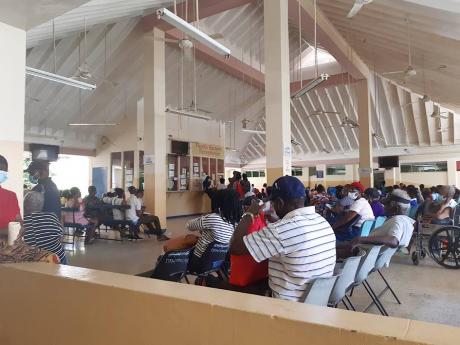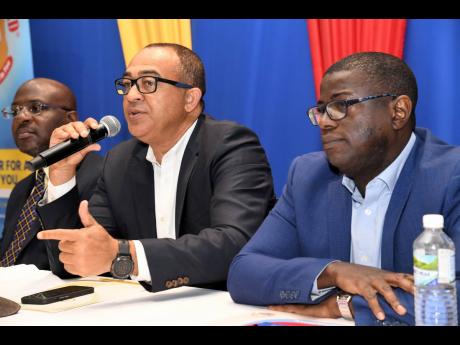Editorial | Consult on health insurance
Dr Christopher Tufton recently disclosed that over the past half-decade the compassionate healthcare grants by the National Health Fund (NHF) increased fivefold, to $500 million.
Relative to the Government’s overall spending on the provision of health services this fiscal year, the figure is tiny: less than half of one per cent of a Budget of over $113.6 billion, when the NHF’s expenditure is taken into account. Nonetheless, it is a pointer to the economic crisis many people confront when they face health challenges and the need to accelerate the conversation on establishing a national health insurance scheme – which has lingered for decades – and how to better use the available resources to finance such a system.
In this regard, while any report delivered by Dr Damien King on the matter will in all likelihood be robust and sound, this newspaper is surprised – and a bit concerned – with the quietude with which Dr King’s task force seems, thus far, to be going about its business. Apart from the time of the announcement of the assignment 10 months ago, the public has heard little from Dr King, and it is not apparent, except perhaps to industry insiders, who are the other members of his team.
This may well be a very legitimate way to proceed. But we had hoped for, and expected, a very inclusive process in which Jamaicans were fully informed of what is intended to be achieved and that their support would have been sought for the venture. That, at least, was the impression left by Dr Tufton, the health minister, when he announced Dr King’s appointment last May.
Minister Tufton said then that, as part of his mandate, the economist would look at healthcare costs and its implications for poverty in Jamaica, explore financing options, “and assist in the advocacy that is necessary to ensure a more sustainable health financing model”.
This is an especially important and urgent exercise, given Jamaica’s current health status and the growing cost of delivering care.
For the current fiscal year ending March 31, the Government allocated approximately $101 billion to healthcare, or 10 per cent of a Budget that has increased 15 per cent since it was first tabled.
That, however, is not the entirety of the Government’s contribution to healthcare. The NHF, an agency financed largely by sin taxes, was expected to contribute a further $12.75 billion to pay for medicines to treat non-communicable diseases, (NCDs) of which Jamaica is facing a crisis.
One in three adult Jamaicans suffers from hypertension and a similar number are hypertensive. Half the population is overweight to obese; approximately 13 per cent are diabetic; and 15 per cent have chronic kidney disease.
Indeed, in the decade up to fiscal year 2021-22, expenditure by the NHF, primarily on NCDs, jumped 139 per cent and was projected to rise another 30 per cent over the next three years. With over 720,000 beneficiaries, which continued to grow even as drug prices rose, there were warnings that the NHF faced the danger of going broke.
It is against that backdrop that the NHF is hoping to cap, and ultimately reduce in real terms, its expenditure on drugs by promoting wellness-centred lifestyles among Jamaicans.
We hope that its initiatives are successful. However, that reversal, if it happens, will not be overnight.
At the same time, the Government enjoys very limited fiscal space within which to expand health expenditure. Further, as the growth in the NHF’s allocation for compassionate health expenditure showed, many Jamaicans struggle to meet the cost of treatments that are not readily available in the public system, or drugs that are not normally covered by the fund.
Further, only about 25 per cent of Jamaicans have private health insurance. The upshot: many people forgo healthcare. Some are driven into dire poverty if they develop serious illnesses.
Clearly, a conversation of how to develop a national health insurance umbrella, and the role private healthcare providers will play in that arrangement, is required – and urgently. So, too, is the work of Damien King’s task force.
Put another way, this newspaper believes that a discourse with Jamaicans on the project should be from the start to its end. Too often the public is brought in at the back end of initiatives, which, to the apparent surprise of policymakers, falter for lack of buy-in.
It is worth remembering that talking at people about a programme or a policy is not the same as engaging them about it.


